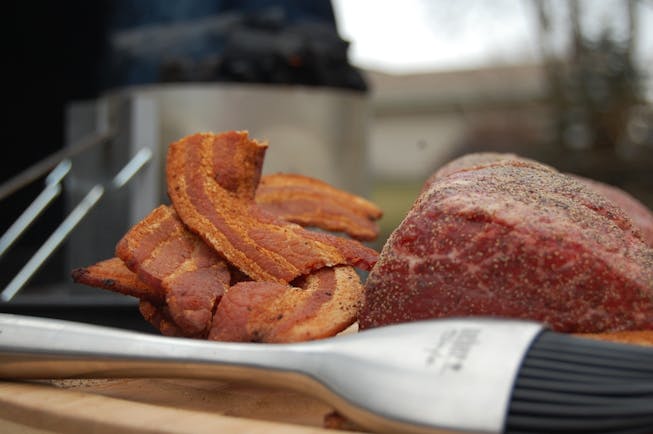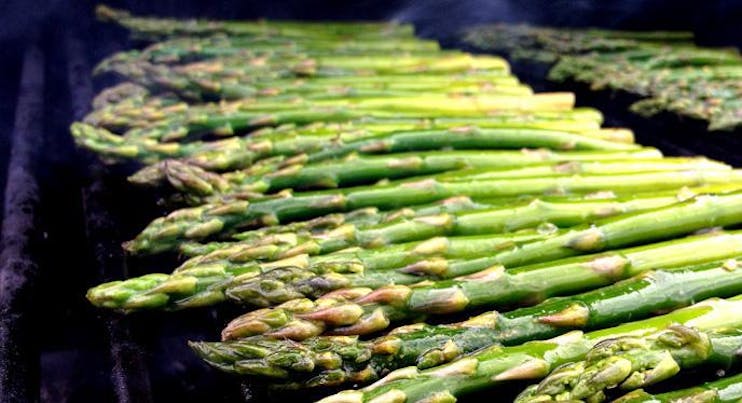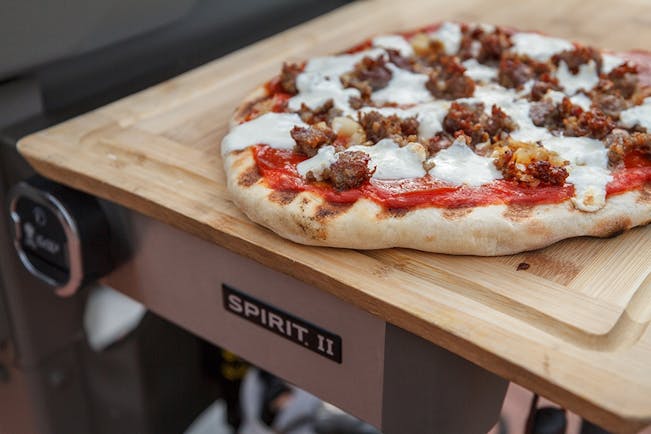How to Avoid the Top 5 Mistakes When Making Ribs
After burgers, brats, steaks, and chicken, ribs are probably next on the list of foods most grillers want to master. And who can blame them? Ribs are awesome, and I’ve loved them ever since I was a little kid. If you asked 5 year old me what his favorite food was, without hesitation I would have said ribs. They’re what I’d choose for my last meal. What I’m saying is, I like ribs a lot and I’ve gotten pretty good at grilling them over the years, but that wasn’t always the case. If I could go back in time and tell myself 5 things to keep in mind to have more success grilling ribs, here’s what I’d say.
#1 Wait to put the BBQ sauce on at the end
Putting BBQ sauce on the ribs at the beginning seems like it would be a good idea. After all, isn’t that BBQ sauce flavor going to get into the meat and make it taste better? Well, not really. What’s actually going to happen is the BBQ sauce is probably going to burn and create a layer of black char all over the surface of your ribs. Avoid this by adding the BBQ sauce only at the very end of the grilling session. After brushing the sauce onto the ribs they will usually take another 10 to 30 minutes, depending on the temperature you’re grilling at. You can also wait until you’ve taken the ribs off the grill before putting the sauce on them.
#2 A little flavor goes a long way
Once upon a time, I thought that I needed to go really heavy on using seasonings in order to give my ribs a good flavor, but it’s actually a much better idea to lean a little bit on the light side when it comes to seasoning in order to not overpower the flavor of the meat itself. You can always add more seasoning if you need to, but you can’t really take it off if you’d added too much. The same can be said about using woods to add a smoky flavor to the ribs. Too much smoke might end up making the ribs taste bitter.
#3 Boiling your ribs before grilling them is cheating
It’s not unheard of for some grillers to boil their ribs before grilling them. It’s a method that can be used to cut down the overall cooking time, and can also make for some very tender ribs, but if you’re using your stove to do most of the cooking and then just finishing them on the grill you may as well just cook them in the oven or broiler. Boiling your ribs will also remove a lot of flavor from them.
#4 Remove the membrane
On the back of most ribs, there is a thin connective piece of tissue called the membrane or silver-skin. It’s a good idea to remove the membrane from the rib otherwise it can become tough and rubbery during the grilling process. Click here for instructions on removing the membrane.
#5 Low and slow is the name of the game
Pretty much every rib recipe out there calls for using a low and slow, indirect grilling method. Grilling them over direct, high heat is a great way to overcook them and have them turn out tough. Indirect, low heat will help create tender meat that will easily tear off of the bone. It can be tempting to try and grill them faster over direct, high heat, but going low and slow will allow you to create some ribs that will impress your guests, and your taste buds.
Weber Rib Recipes
At some point, every meat lover has eaten boring, bland ribs that have been drowned with BBQ sauce to provide them with some flavor, but it doesn’t have to be that way! You might be surprised at how creative you can get with ribs. Check out some of our rib recipes here, here and here to help inspire your next grill session.
Baby back ribs are probably the most popular type of rib, but that doesn’t mean you shouldn’t try one of the other ones! Check out our Rib 101 blog to learn about the different types of ribs!
To maximize the rib capacity of your grill, check out some of our rib racks here, here, and here.
Learn how to use a rib rack here.
Be sure to share pictures of your ribs with us on Facebook, Instagram and Twitter! Use #WeberForLife or #WeberGrills!



